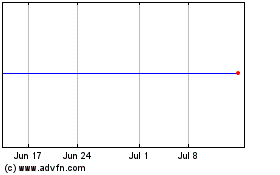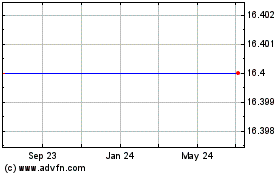Tiny Superior Uses TARP To Book Accounting Gain
December 15 2009 - 4:57PM
Dow Jones News
A small bank has shown that it's easy to boost its equity
capital through a simple accounting maneuver - all you need is a
little government bailout money.
While big banks can't wait to repay their government aid,
Superior Bancorp (SUPR) got creative in using the $69 million it
got last year from the Troubled Asset Relief Program. The bank
converted the preferred stock owned by the Treasury Department as a
result of TARP into trust preferreds - which will add $22.5 million
to tangible common equity.
Jim White, Superior's chief financial officer, said in an
interview with Dow Jones Newswires, "I did get a sense in our
conversations with the Treasury that we are not alone" with the
idea of converting government shares to improve capital. The
transaction generated an accounting gain because the terms of the
newly issued securities compared favorably to current market
rates.
The stock of the tiny bank in Birmingham, Ala., rose 6.3%
Tuesday, to $1.87, after the bank completed the transaction the
night before; it lifted its tangible common equity capital to 5.81%
of total capital - improving a key ratio for regulators and
investors. Most other bank stocks declined on Tuesday. Superior has
$3 billion in assets, and its stock market capitalization is $22
million.
The idea could spread, particularly among small banks suffering
from sharp stock price declines. Often they have difficulties
finding investors to beef up their capital, said Sandler O'Neill
& Partners LP analyst Kevin Fitzsimmons. Superior's stock is
down 41% so far this year.
The accounting gain may not be enough to make up for low capital
levels, but "it's a gain nonetheless," Fitzsimmons said. And even
incrementally improved capital might make it easier to persuade
investors to help capitalize a bank further, he said.
Popular Inc. (BPOP) got the ball rolling this summer when it
converted the preferred stock it issued the Treasury Department for
TARP funds into trust preferred securities. It booked a $500
million accounting gain.
Popular's aim was not accounting; rather the move was designed
to force private preferred stock holders to convert their shares to
common stock. After allowing the government to convert to a more
secure investment, Popular eliminated the preferred stock dividend.
Still, the gain helped to convince Wall Street of the merit of
Popular's move.
For the government, the move is a good one because the Treasury
is in a more secure position as trust preferred holders. "We went
to Treasury" with the proposal, said White, Superior's CFO, "and
found Treasury extremely helpful."
Investment bank Keefe, Bruyette & Woods Inc. (KBW)
introduced the idea to Superior, White said. And Treasury approved
the proposal in as little as nine days, the CFO said. A Treasury
spokeswoman said, "we don't provide details on individual
institutions or private discussions about their agreement with
Treasury."
White said the gain "is the initial stage in a multi-faceted
program" to increase equity capital. "We will take other steps as
market conditions seem appropriate," and the initial improvement in
capital and the rise of Superior's stock Tuesday could make an
equity offering easier.
Fitzsimmons wrote in his research report, "many investors will
view the improvement as fairly modest and perhaps as little more
than 'smoke and mirrors'"
But White said the transaction doesn't increase the bank's
expenses and is not diluting shareholders. "It may be an accounting
gain," he said, but he doesn't think it should be dismissed out of
hand.
- By Matthias Rieker, Dow Jones Newswires; 212-416-2471;
matthias.rieker@dowjones.com
Kbw (NYSE:KBW)
Historical Stock Chart
From Mar 2024 to Apr 2024

Kbw (NYSE:KBW)
Historical Stock Chart
From Apr 2023 to Apr 2024
